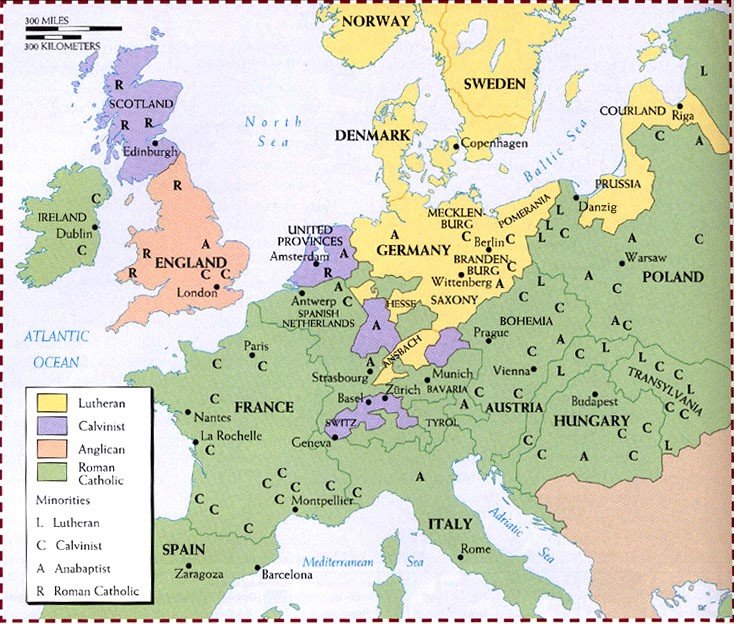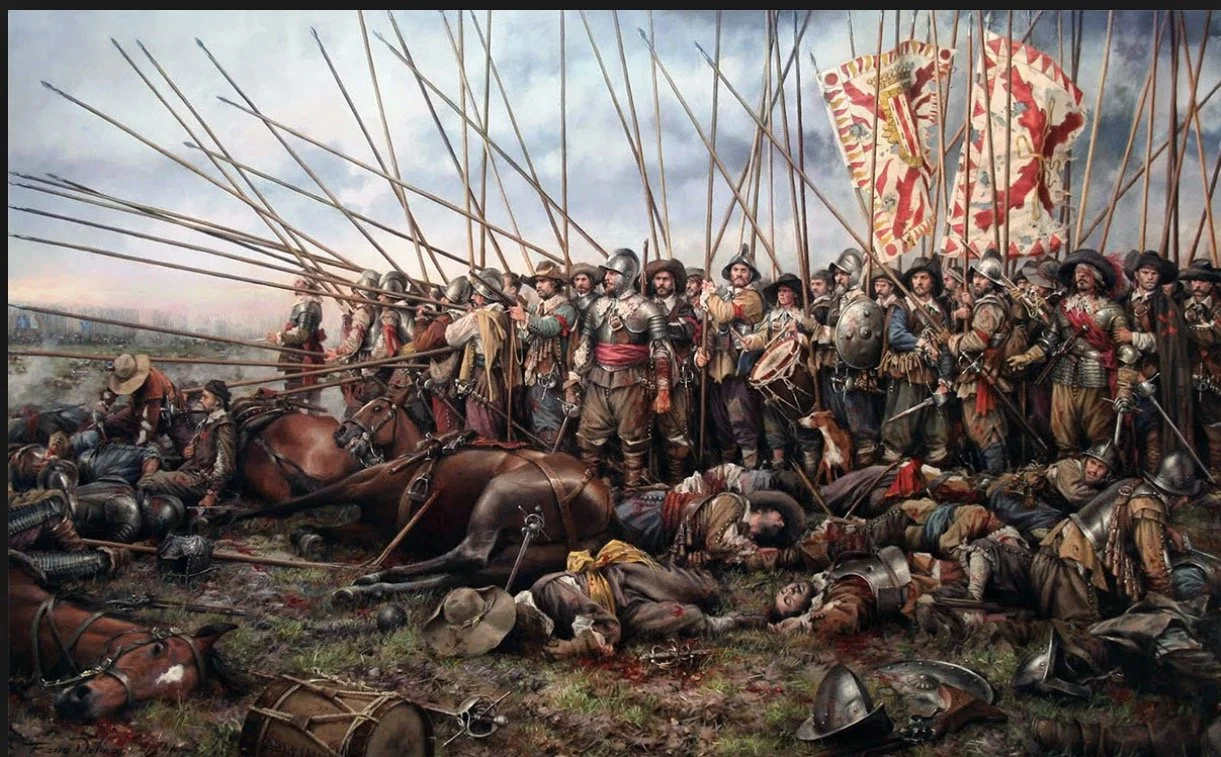By the mid-seventeenth century, Dutch power was its peak. The long eighty year war with Spain and Portugal had not only resulted in the Dutch Republic permanently securing its independence, it also gave the Dutch unprecedented control over world trade. With more merchant ships than the rest of the major European powers combined, the Dutch had managed to gain nearly complete control over the trade of wood from the Baltic, furs from North America, sugar from Brazil and the Caribbean, slaves from Africa, and spices and other exotic goods from India and the Far East. Wielding its financial might, the Dutch had managed to outlast the Spanish, bankrupting their rivals by disrupting the flow of silver from New Spain. At the top of the food chain, with peace secured, the Dutch proceeded to become complete dumb asses, beginning a period of disarming their military and completely ignoring the rising threats around them. Of course, it didn’t take long for other groups to begin to take advantage.
The first to successfully challenge Dutch dominance were the Portuguese. Having been ruled by Spain for some sixty years, Portugal became an independent nation again in 1640 and soon after began trying to reclaim its former empire. Though unable to re-secure its former dominance in either the Far East or Africa, it did manage to re-secure Angola in 1648 and Brazil in 1654, both lost to the Dutch some four decades earlier. This created new competition in the African slave market and Caribbean sugar market which hurt the Dutch bottom line.
The second group to challenge the Dutch were the English. During the English Civil War, a time when the English had a foreign policy of basically, we don’t have time for this shit, the Dutch were real dicks to English shipping and fisherman, pushing them around whenever they felt like it and jacking up prices for goods to ridiculous levels. However, once England got their shit together, they began building up their navy and passing laws requiring all trade to and from England and its colonies to be done by English vessels. This didn’t sit well with the Dutch, and as a result the two countries fought three maritime wars between 1652 and 1674. Though largely ending in draws, the English were able to seize control of New Netherlands, cutting the Dutch out of the North American fur trade, and assert themselves into the African slave trade via the Royal African Company and the spice trade via the East India Company, hurting the Dutch bottom line.
The final group to challenge the Dutch were the French. Ruled by an autocratic king who dreamed of being king of all of western Europe, he launched a six-year war against the Dutch Republic starting in 1672, nearly conquering the country before being pushed out in a long and costly war. France attacked again in the Nine Years’ War between 1688 and 1697, which saw the French take on pretty much every major power much to their detriment. This war was in turn then followed by the War of Spanish Succession between 1701 and 1714, which resulted due to the King of Spain dying without an heir and the king of France trying to merge the two kingdoms. Again the French aims were thwarted, but at a high cost to the Dutch and their allies.
The result of all the declining Dutch monopoly and the constant warfare was that the Dutch basically went bankrupt, making it even more difficult for them to continue to dominate global trade. No challenger took more advantage of this then the English, who by the end of the century had become a major player in the Far East spice trade themselves, mostly thanks to giving the East India Company the right to basically act as its own country. By the end of the seventeenth century, though still an important global player, they were no longer the pre-eminent super power, replaced by France and England, rivals who would clash for dominance repeatedly over the next century.






